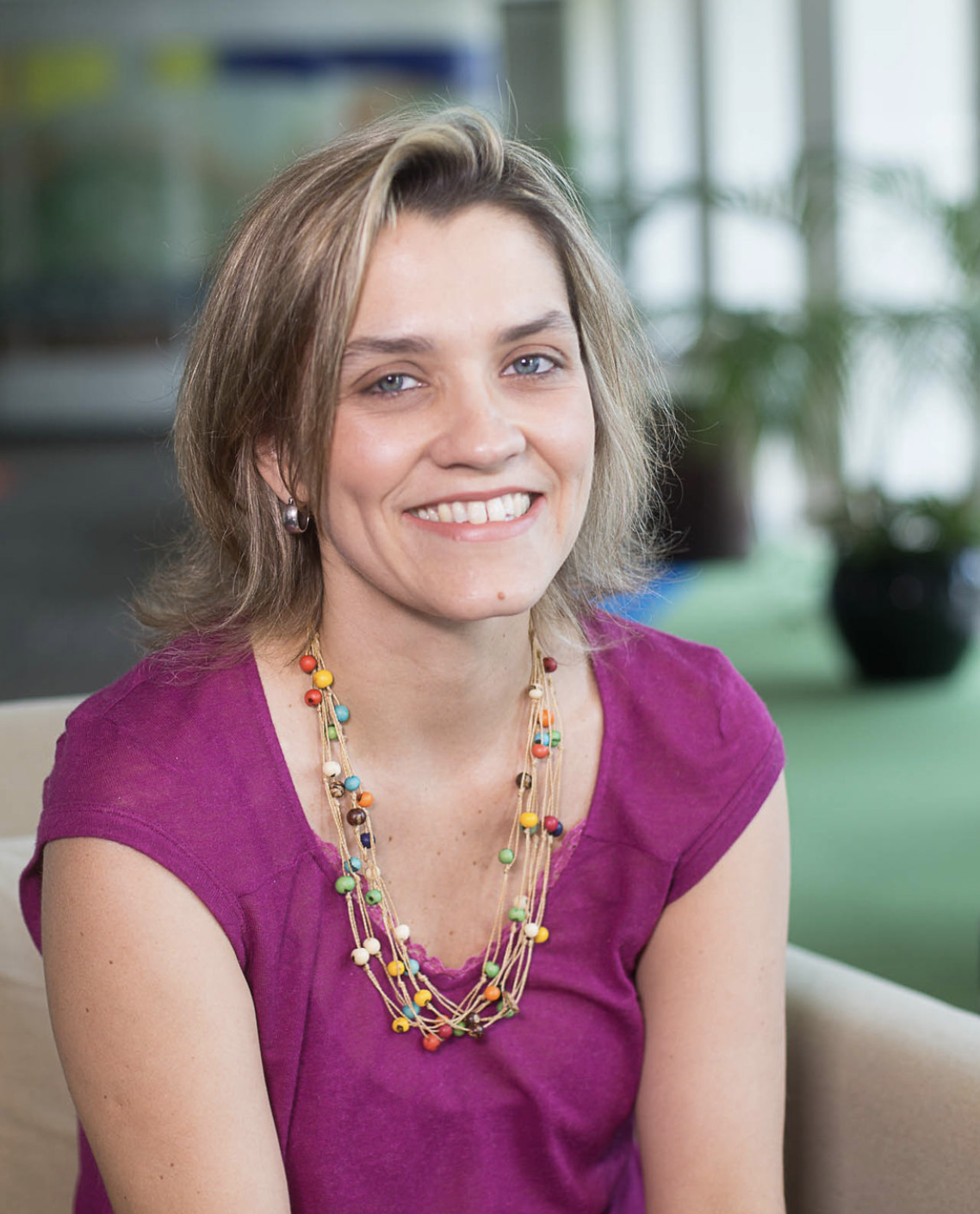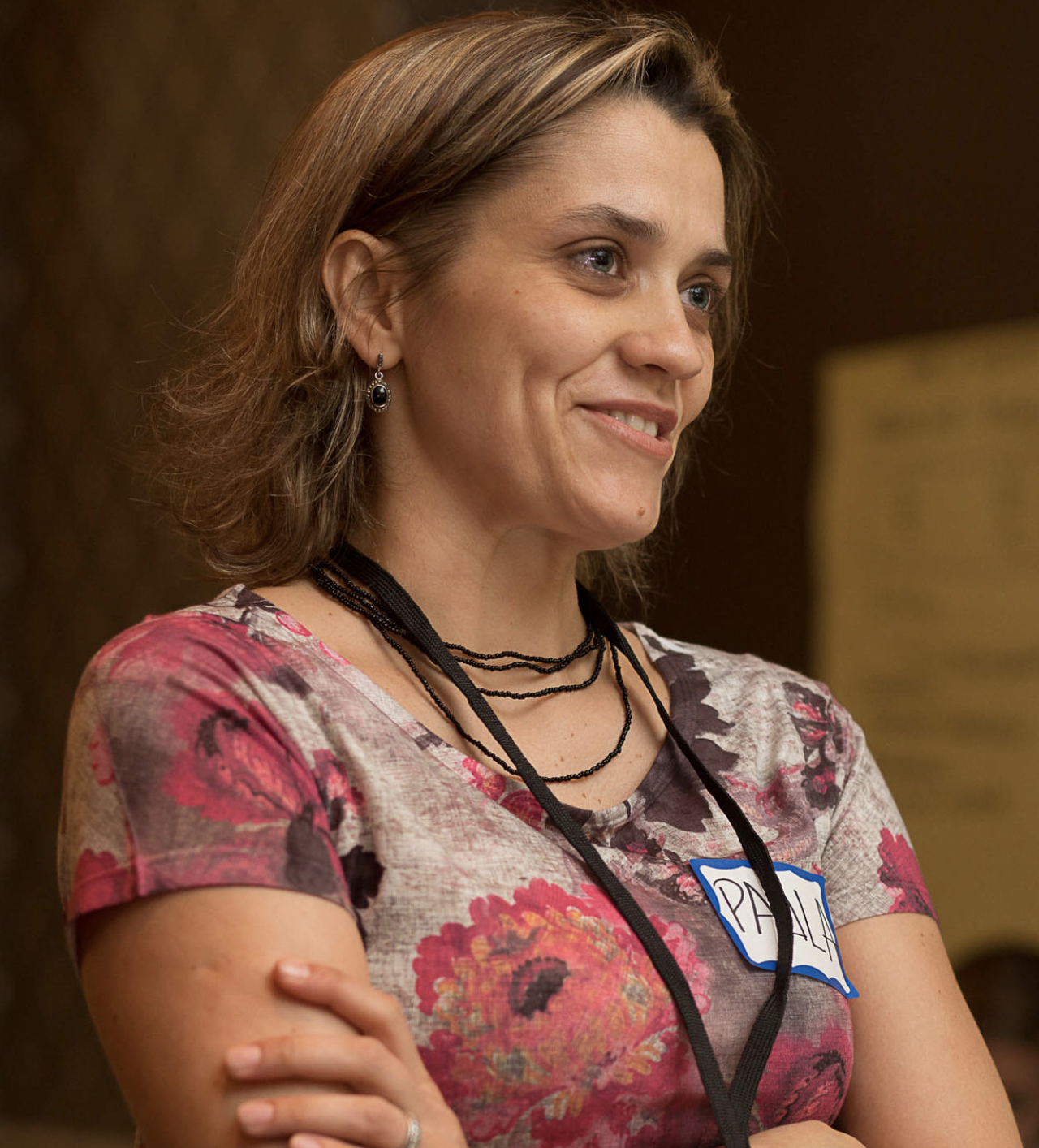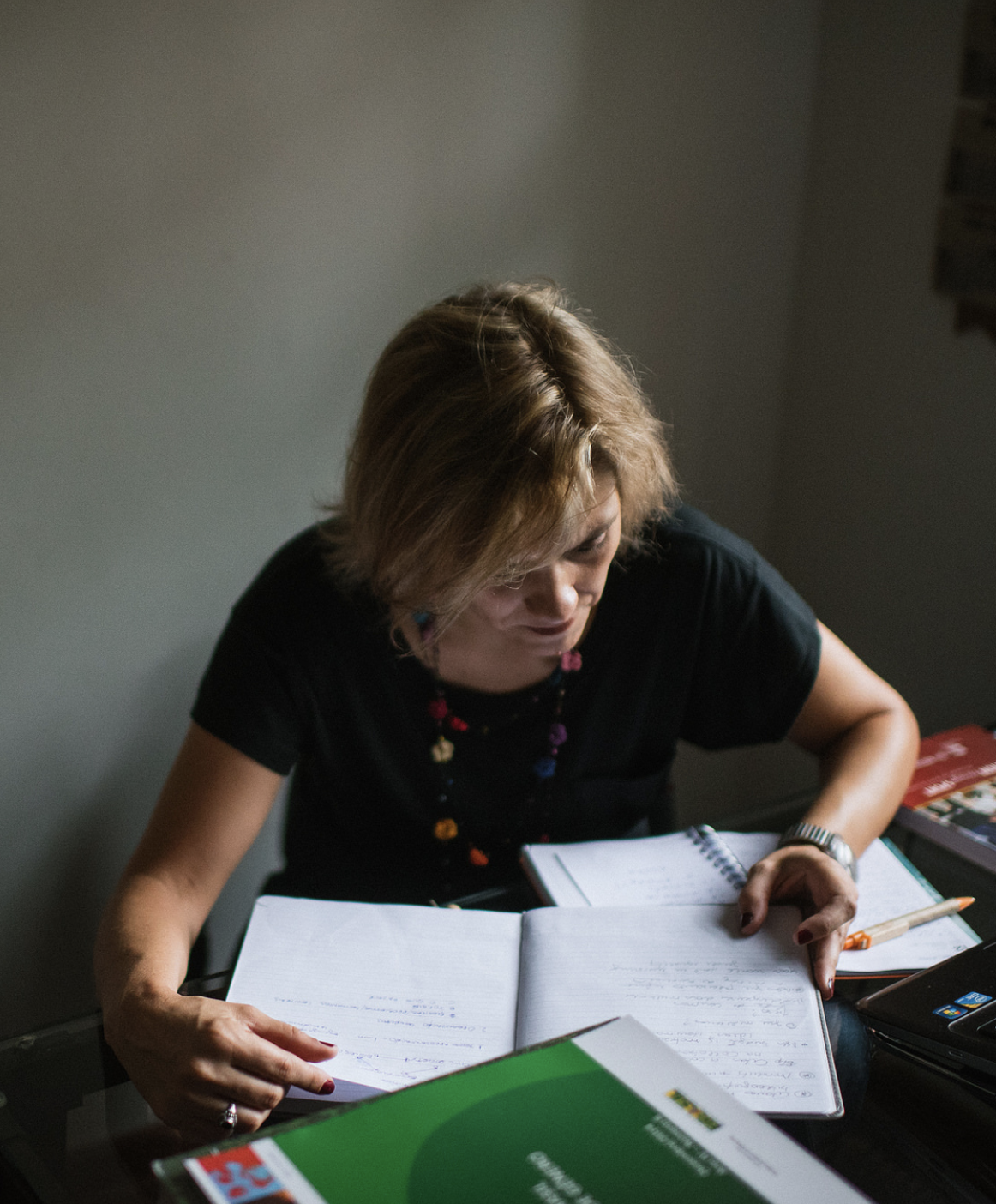
Growing up in Brazil, Paula Korsakas always loved sports. Her very first memories are of playing volleyball, handball, basketball and tennis in the garden with her siblings. When they didn’t have the proper equipment, they would fashion it from items around the house: makeshift nets, bases, hoops, bats, and racquets. Her parents were also very active, constantly playing games with their children and encouraging each of them to play as many sports as they wanted. Her favorite sport was volleyball, which she played on weekends with school friends in the streets near her house and during summer breaks on the beach.
At 14 years old, Paula and her mom signed up for a YMCA fitness class, not knowing what to expect. To their surprise, it was an all-ages basketball team, where Paula was the youngest player by decades. Paula never intended to play in a basketball league. For her, it was just a fun activity to play with her family in the backyard. Instead of allowing the age gap or her lack of experience to deter her, she drew inspiration from the opportunity. To this day, she recalls in vivid detail everything from the bond with her teammates to the way it felt to play. “That really was a defining point in my life,” she says. “After that, I didn’t stop playing basketball.”
As an adult, Paula recognizes how privileged she was to never face barriers to playing sports. “We still have those stereotypes, like sports are about being strong and aggressive and sweaty,” she says of society in Brazil. “It’s not girl stuff.” In 1941, the country passed a law that made it illegal for women to participate in any sports that were against their “nature.” The law was eventually overturned in 1979, but it took many more years for the presence of women in sport to normalize. Since then, women’s teams in Brazil continue to face discrimination. Minimal investment, pay inequalities, and restricted access to safe sporting facilities have limited women’s sporting opportunities.

In 2011, Brazil elected its first female president, and Paula says the country is undergoing a deep cultural shift in its attitude toward women in leadership. Unfortunately, the cultural shift does not seem to be changing in all areas of society. It is estimated that every hour ten women in Brazil experience domestic violence. The country suffers from one of the highest rates of femicide in Latin America—an average of four women per day. Paula believes there is still a lot of work to be done to protect women and provide them with equal opportunities.
Raised by a mom who treated her girls and boy as equals, Paula has trouble understanding why things are so different for women versus men. “I just can’t figure out why our gender could make a difference in having more or less rights,” she says. “It’s not about being a woman or a man. We are humans, and that’s the only thing that matters.” Paula believes that the human condition—for all genders—is that of an embodied spiritual being, and that engaging in sport integrates the physical and spiritual more fully than anything else. When she plays basketball, she feels a sense of fulfillment and pure pleasure. “For me,” she says, “basketball allowed me to express myself. It helped me form my identity and develop new friends. I learned to train, to compete, and to be disciplined. The structure, the hierarchies that exist in life disappeared on the court. As a player, I realized that sport can be a powerful tool for human development—physically, mentally, and socially. It has the ability to transform people and realities, and that’s exciting.”
Paula knew from early on that she wanted to integrate sports with her educational life. In 1994, she began studying at the School of Sport and Physical Education at the University of Sao Paulo. While there, she joined the collegiate basketball team and played pick-up games during lunch, though she was always the lone woman on the court. She then applied for a youth basketball league coaching position with the school’s sport for human development program, which was aiming to increase female access and exposure to sport. “Basketball was everything I wanted to do at the time,” says Paula. “Playing basketball, coaching basketball, studying basketball… I was busy 24 hours a day, 7 days a week, doing basketball stuff, but I was really happy.” In 1997, she graduated with her bachelor’s degree in sports science, and two years later she started a master’s program at Sao Paulo’s School of Physical Education and Sport. She graduated with a master’s degree in pedagogy of human movement in 2003.


In 2014, Paula joined the Global Sports Mentoring Program (GSMP). She had always wanted to participate in an exchange program, and the timing was perfect for her. The GSMP experience broadened her horizons in many ways. She began to see a whole new world unveiling before her that was comprised of women from so many different realities. The world was bigger and more complex than she had imagined, and she came away with a more critical eye and an analytical view of the gender inequalities in her country and around the globe. The GSMP also opened doors to her that had previously been shut, as she was now considered an expert at the intersection of gender inequality and sport.
Paula has never been able to sit still, but, since the GSMP, she has been more active than ever. In 2021, Paula finished her PhD program focused on coaching in sport for development programs. Additionally, she started developing a coaching education system for a school basketball program in Brazil, co-leading a long-term athlete development program created for the Brazilian Surf Federation, systematizing the pedagogical approach of a tennis NGO and facilitating a Community of Practice on Football and Feminism with Argentinian women coaches. She is now part of an initiative with the Brazilian Ministry of Sport to develop the country’s National Sports System and has been nominated to the Brazilian Rugby Federation Administration Council. She works for herself as a coach developer and sports consultant, guiding organizations as they structure programs for long-term athlete development, and serves as the manager of the sport for human development program that she coached in college.
Paula has come a long way from the pick-up games in her family’s garden, but she has never forgotten the lessons in equality that her mother modeled for her. She dreams of uniting entities across sectors to tackle the issues facing women and girls, providing equal access to sports, and creating a nationwide network of women leaders in sports in Brazil. “Sport means equality, honesty, respect, cooperation, friendship, and love,” she says. “It should be a constitutional right.”